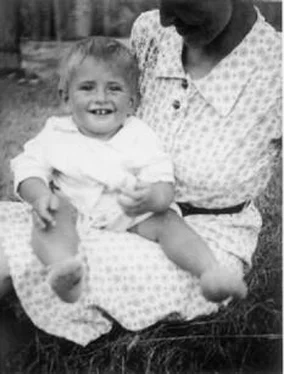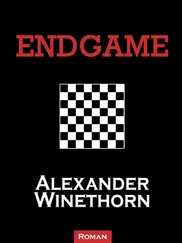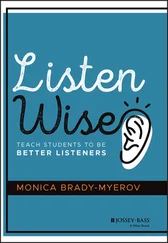“Nobody we knew ever played chess and we never saw anyone playing it,” Fischer would later write. It’s impossible to say with certainty whether Bobby actually won the first game he played, but it’s likely he did, given his propensity for solving puzzles quickly and the fact that his first opponent was his sister, who didn’t particularly take to chess. “At first it was just another game,” remembered Bobby, “just a little more complicated.” Joan, tied to her homework—she was an honor student—quickly became uninterested in chess and didn’t have time for it, so Bobby taught his mother the moves. Bobby said later: “She was too busy to take the game seriously. For example, she’d try to peel potatoes or sew up a hole while she was playing, which, of course, annoyed me very much. After I’d beat her, I’d turn the board around and go on playing her side until I beat her a second time. Both of us got tired of this, and I was looking for someone to play chess with all the time.”
That six-year-old Bobby was beating thirty-six-year-old Regina and eleven-year-old Joan, as brilliant as both were, is significant in understanding his rapidly evolving mastery of chess, and himself. It gave the boy confidence and built his self-esteem. The problem was that neither mother nor sister ever really wanted to play. “My mother has an anti-talent for chess,” Bobby once told an interviewer. “She’s hopeless.”
Since Bobby couldn’t find a worthy opponent, or any opponent for that matter, he made himself his principal adversary. Setting up the men on his tiny board, he’d play game after game alone, first assuming the white side and then spinning the board around, with some pieces often tumbling onto the floor. He’d scramble after them, place them quickly back on their squares, and then play the black side. Trying to outwit himself required an unusual turn of mind. Black, for example, knew what white was going to do, and vice versa, because black was Fischer and so was white. So the only way the game made any sense to Bobby was to study the board anew after every single move, pretending he was playing a real opponent. He tried to forget what he’d just planned to do when he was playing the other side. Instead, he sought to discover any trap or pitfall lurking in his “opponent’s” position and respond accordingly. To some, such a regimen might seem simplistic or maddening, even schizophrenic. However, it did give Bobby a sense of the board, the movement and role of the pieces, and the choreography of how a game of chess could develop. “Eventually I would checkmate the other guy,” he chuckled when he described the experience years later.

In the fall of 1950, Regina moved the family out of Manhattan and across the bridge to Brooklyn, where she rented an inexpensive apartment near the intersection of Union and Franklin streets. It was only temporary: She was trying to get closer to a better neighborhood. Robbed of her medical degree in Russia because of the war, she was now determined to acquire a nursing diploma. As soon as she enrolled in the Prospect Heights School for Nursing, the peripatetic Fischer family, citizens of nowhere, moved once again—its tenth transit in six years—to a $52-a-month two-bedroom flat at 560 Lincoln Place in Brooklyn. Never shy about asking for what she or her children needed, Regina recruited neighbors to help her transport, box by box, the family’s sparse belongings across Eastern Parkway a few blocks, to what she expected would be a somewhat more lasting home. Though the small apartment was a third-floor walkup, its proximity to the nursing school enabled Regina to look after her children while attending classes. Bobby and Joan each had a room to themselves, and Regina slept in the living room on what was called a daybed. This apartment was also in a better neighborhood. Flatbush was middle-class Jewish, beginning to be populated by other ethnic minorities, and in closer walking distance to lush Prospect Park and the Botanical Gardens, as well as one of the city’s finest libraries, at Grand Army Plaza.
Bobby, then seven years old, hated his new environs. When cold or rainy weather forced him inside, he could find no place to play in the building, and even on nicer days Regina showed a reluctance to let her son play in the streets unsupervised. Occasionally, Bobby and another boy who lived in the building would rush up and down the stairwells and landings, playing tag, but they were chastised so often by the landlord that an embargo on any kind of noisy physical activity was handed down in writing by the building’s management. Bobby loved to climb onto his bed and then jump off to see how far away he could land. Farther and farther he’d soar, making note of his progress. The tenants downstairs complained of the banging noise coming through the ceiling, and bed-to-floor leaping was declared off-limits as well. When Bobby got older and started doing calisthenics, management objected to that, too. Years later Bobby commented, “If anyone asked me what I owe my [interest in] chessplaying to, I could say it was the landlord.”
Bobby grudgingly tolerated being in the care of Joan, five years his senior, whenever his mother was at school or work. Regina was constantly active, working as a stenographer on those days that she had no nursing classes. During the times she had no work, she collected an unemployment check of $22 a week. She was intensely involved in political activities as well, but she always saw to it that when Bobby was little there was food to eat and that someone—Joan, a neighbor, a friend—watched over her son.
Regina knew that Bobby was intellectually gifted, but at first she didn’t considered him a “prodigy.” Certainly, he could figure out some things faster than she could. He quickly saw patterns and analogies that helped him jump to reasoned conclusions, such as figuring out that if a bank was closed on one street because of a holiday, then a bank on another street would likely be closed too.
The problem with Bobby was a social one: From a very early age he followed his own rhythms, which were often antithetical to how other children developed. An intense stubbornness seemed to be his distinguishing feature. He was capable of ranting if he didn’t get his way—about foods he did or didn’t like, or when to go to bed (he liked to stay up late), or when to go out or stay home. At first Regina could handle him, but by the time Bobby reached six, he was dictating policy about his own regimen. Bobby wanted to do what he wanted to do—and to choose when, where, and how to do it.
“When he was seven,” Joan said in an interview, “Bobby could discuss concepts like infinity, or do all kinds of trick math problems, but ask him to multiply two plus two and he would probably get it wrong.” Although this was likely an exaggeration, it’s clear that Bobby hated memorizing things that failed to engage his interest, and multiplication tables fell into that category. The story that he could understand number theory and the complexity of prime numbers and their infinite results but not perform simple multiplication is analogous to the myth of Einstein not being able to do his own income tax.
Regina visited guidance centers and agencies for gifted children, sometimes alone and sometimes with Bobby in tow, to determine whether they could offer tips for getting her son through school and helping him connect with other children. Of primary importance to her was education. She felt that Joan was being intellectually stimulated at home, but that the creative ferment she always attempted to foster was having little effect on Bobby. He took no interest in the stacks of books that Regina, an avid reader, always had in the house. She was a college graduate, almost a medical doctor but without the degree, a former teacher and a perpetual student, and her home was a gathering place for the intelligentsia she’d meet at school or through her political groups. At night and on weekends, there were often lively discussions around her kitchen table, sometimes with friends—mostly Jewish intellectuals. The subjects often revolved around politics, ideas, and cultural issues. Arguments raged over Palestine and Israel and the possibility that Eisenhower might run for president. When within a month two great educators, Maria Montessori and John Dewey, died, the talk was of writing and advanced reading skills and whether they were good for the very young. Bobby and Joan were present, but though Bobby may have absorbed some of what was said, he never participated. Years later, he blurted out that he’d “hated” all of that kind of talk.
Читать дальше



![Антон Текшин - EndGame [СИ]](/books/394477/anton-tekshin-endgame-si-thumb.webp)









